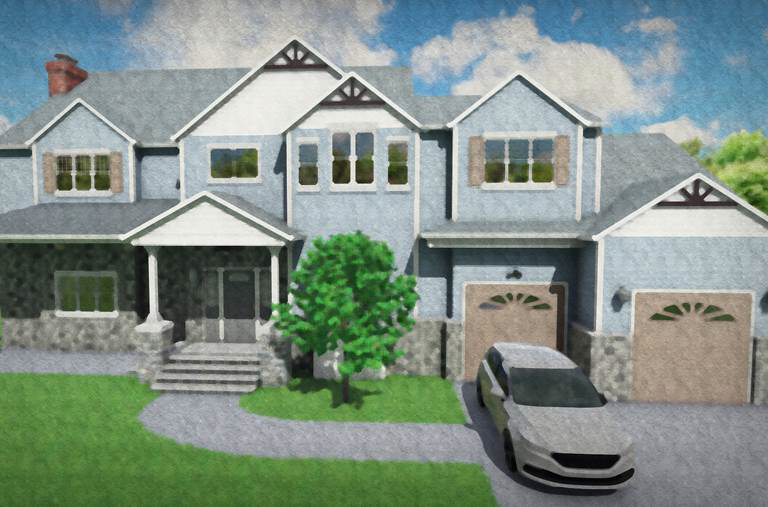Exporting the Viewport to a File
This command saves the contents of your current view as a JPEG or other image file. It can also be used to take a screenshot during a Realtime Walkthrough.
To export the viewport to a file:
- Adjust the view as needed so that what you want to save is displayed on your screen. For instructions, see Adjusting the View.
- From the File menu, click Export Viewport to File. Or press F5.
- Select the location for your new image and type a file name.
- Click the Save as type: drop-down menu and select a file type.
- Set the desired options and click OK.
A picture of your viewport will now be saved to the file name and location specified.
Choosing the Render Quality
For the most realistic output, enable Global Illumination or Path Tracing. These advanced options simulate the complex behavior of light, resulting in more accurate lighting, shadows, and reflections. However, they do take longer to render.
To enable Global Illumination:
- Click Graphics Setings or press F7.
- Click the Render Options tab.
- In the Global illumination row, check the Screenshot option.
To enable Path Tracing:
- In the Export to File dialog, check the Use path tracer option.
- Select the desired samples (64 is recommended).
Note: When path tracing is enabled, the Global Illumination option will be ignored.
Creating a Stylized Rendering
The Render Style option can give your image a different look and feel. A variety of render styles are available; each one is explained below.
| Render Style | |
|---|---|
| Normal | No render style will be applied. |
| Colored pencil | The picture will appear as if it were drawn using colored pencils. |
| Painting | The picture will appear as if it were painted on a canvas. |
| Watercolor | The picture will appear as if it were painted using watercolors. |
The following image is an example of the Watercolor render style:

Tips:
- The Saving and Restoring Viewpoints feature makes it much easier to reproduce screen shots from exact locations.
- The picture can be printed after it is created; see Printing a Screenshot for more information.